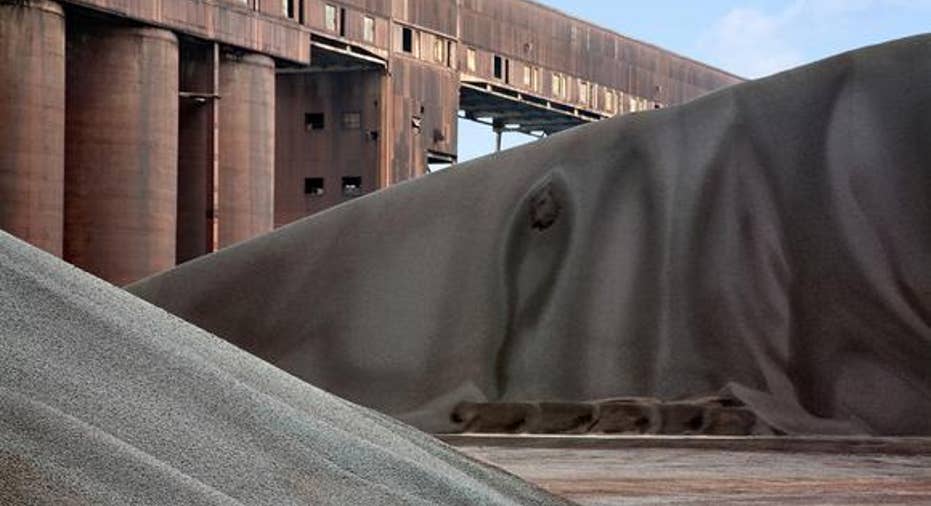Why Textura, St. Jude Medical, and Cliffs Natural Resources Jumped Today

Image source: Cliffs Natural Resources.
The stock market declined sharply on Thursday, and two major factors appeared to create broad concerns for investors. First, the influence of central banks around the world made itself felt once again as a decision from the Bank of Japan not to inject expected stimulus into its economy made investors question whether the commitment to take extraordinary measures to produce economic growth is still there. Yet the market didn't really begin to decline until news came out that activist billionaire investor Carl Icahn had exited his much-followed position in Apple. From there, major market benchmarks dropped sharply, finishing down around 1%.
Still, some stocks managed to produce extraordinary gains despite the negative mood on Wall Street, and Textura , St. Jude Medical , and Cliffs Natural Resources were among the top performers in the market.
Textura soared 31% after tech giant Oracle agreed to buy the provider of construction-contract and payment-management cloud services. Oracle agreed to pay $26 per share in cash for Textura, valuing the takeover at $663 million once you account for the cash Textura has on its balance sheet. An Oracle executive pointed to the fact that the "increasingly global engineering and construction industry requires digital modernization in a way that automates manual processes and embraces the power of cloud computing to easily connect the construction job site, reduce cost overruns, and improve productivity," and the company sees Textura as helping Oracle flesh out its cloud services in that area. The company expects the deal to close before the end of the year, subject to at least two-thirds of Textura shareholders tendering their stock and obtaining regulatory approval.
St. Jude Medical climbed 26% on merger news of its own. The medical-device maker got a bid Thursday morning from healthcare peer Abbott Labs , which announced it would enter into a deal worth a total of about $25 billion. Under the proposed merger terms, St. Jude shareholders will receive $46.75 in cash along with just over 0.87 shares of Abbott stock for every St. Jude share, making the total worth roughly $85 coming into the trading day. Abbott argued that St. Jude's presence in certain cardiovascular specialties, including heart-failure devices, atrial fibrillation, and cardiac rhythm management, complement Abbott's own expertise in coronary intervention and transcatheter mitral repair. As St. Jude CEO Michael Rousseau said, "Our combined scale with expand the global reach, competitiveness, and impact of our medical device innovation for physicians and hospitals." The parties hope the deal will close in the fourth quarter.
Finally, Cliffs Natural Resources jumped 25%. The iron-ore producer reported better first-quarter financial results than investors had expected, including positive net income of $117 million for the quarter. That produced earnings of $0.62 per share, and CEO Lourenco Goncalves celebrated the results as "clearly demonstrat[ing] how far we have come on our turnaround." Cliffs has struggled under the weight of low commodity prices and poor demand for steel, which has hurt its ability to supply raw materials for steel production. Yet Cliffs has put itself into position to benefit as long an uptick in commodity prices can support its restarting operations and moving back toward a higher production level.
The article Why Textura, St. Jude Medical, and Cliffs Natural Resources Jumped Today originally appeared on Fool.com.
Dan Caplinger owns shares of Apple. The Motley Fool owns shares of and recommends Apple. The Motley Fool owns shares of Cliffs Natural Resources and Oracle. Try any of our Foolish newsletter services free for 30 days. We Fools may not all hold the same opinions, but we all believe that considering a diverse range of insights makes us better investors. The Motley Fool has a disclosure policy.
Copyright 1995 - 2016 The Motley Fool, LLC. All rights reserved. The Motley Fool has a disclosure policy.



















